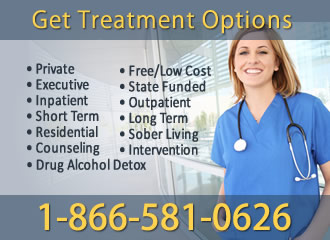Navigation
- Home
- Are All Drug Rehab Centers The Same?
- Getting An Intervention For Drug Rehab
- Holistic Drug Rehabs
- How Do I Choose A Drug Rehab?
- How Long Do You Stay In Drug Rehab?
- How Much Does Drug Rehab Cost?
- Is Detox The Same As Rehab?
- Is Drug Rehab For Everyone?
- Residential Drug Rehab
- Types Of Drug Treatment
- What Can I Expect In A Drug Rehab Facility?
- What Is Relapse Prevention?
- What Kind Of Drug Rehab Centers Are Available?
- How Long Is Long-Term Rehab?
-

Drug Rehab Help-Line
Don't know what to do?
We Can Help. -

Speak With a Counselor
Our counselors can guide you every step of the way. -

Get Treatment Options
Many treatment options available. Call Now.
Help Me Find a Drug Rehab Center
New Jersey
As a state, New Jersey has a slightly lower estimated average of illicit drug use. In a 2007/2008 survey conducted by The National Survey on Drug use and Health, 6.42% of New Jersey residents reported using illicit drugs in the past month; at the time of this survey the national average was 8.02%. This survey goes on to report that 2.73% of the 6.42% abusing illicit drugs in the past month were using an illegal drug other than marijuana. The national average for past-month illicit drug use other than marijuana was 3.58% at the time the survey was taken. The Centers for Disease Control and Prevention found that in 2007, 797 people died in New Jersey as a direct consequence of drug use, abuse or addiction problems. This amount is more than the number of people who died from motor vehicle accidents (719) or firearms (446) during the same year. However, New Jersey drug-induced deaths (9.2 per 100,000 population) were lower than the national rate (12.7 per 100,000). In 2008, New Jersey created a prescription monitoring program; as of 2010 the program was not yet operational. When this program goes into operation it will monitor controlled substances in Schedules II, III, and IV, and the data will be collected bi-weekly. Treatment Episode Data Set reports that during 2010 the most commonly cited drug among drug rehab admissions in New Jersey was heroin. Following heroin, the next most common drug cited in drug rehab admissions was marijuana, other opiates, cocaine, tranquilizers, PCP, other/unknown, stimulants, hallucinogens, sedatives and inhalants.
Drug addiction affects the user’s work, home life, social life, health and finances. Many addicted individuals in New Jersey struggle with trying to end their addiction problem on their own. When they inevitably relapse, they become discouraged and the cycle of drug use, abuse and addiction begins again. What the addicted person does not realize is that quitting on your own is nearly impossible. Drug and alcohol use changes the user’s brain creating new pathways and hindering their ability to exert self-control over their drug use. When cravings and compulsions come on the newly sober person is likely to find they are overwhelmed by the desire to take drugs. Going through a drug rehab program will address the issue of drug cravings and relapse, as well as many more. Effective drug rehab programs help the addicted person gain control back over their emotions, thoughts and actions. Feeling like you are in control of yourself, your environment and your future is necessary for a recovering person; drug addiction often makes the user feel helpless and out of control. During the time a person is actively abusing drugs they usually feel that their need to get high, stop their withdrawal symptoms from coming on, escape from life’s problems or boredom controls their drug use. There is always a reason to use and hardly one good enough not to. Drug rehab helps to address these personal issues in one’s life that drive them to choose drug use as a means of escape or problem solving. They will learn healthy ways to handle day to day life without turning to drugs and develop relapse prevention techniques and life skills that will serve them long after they complete drug rehab.


